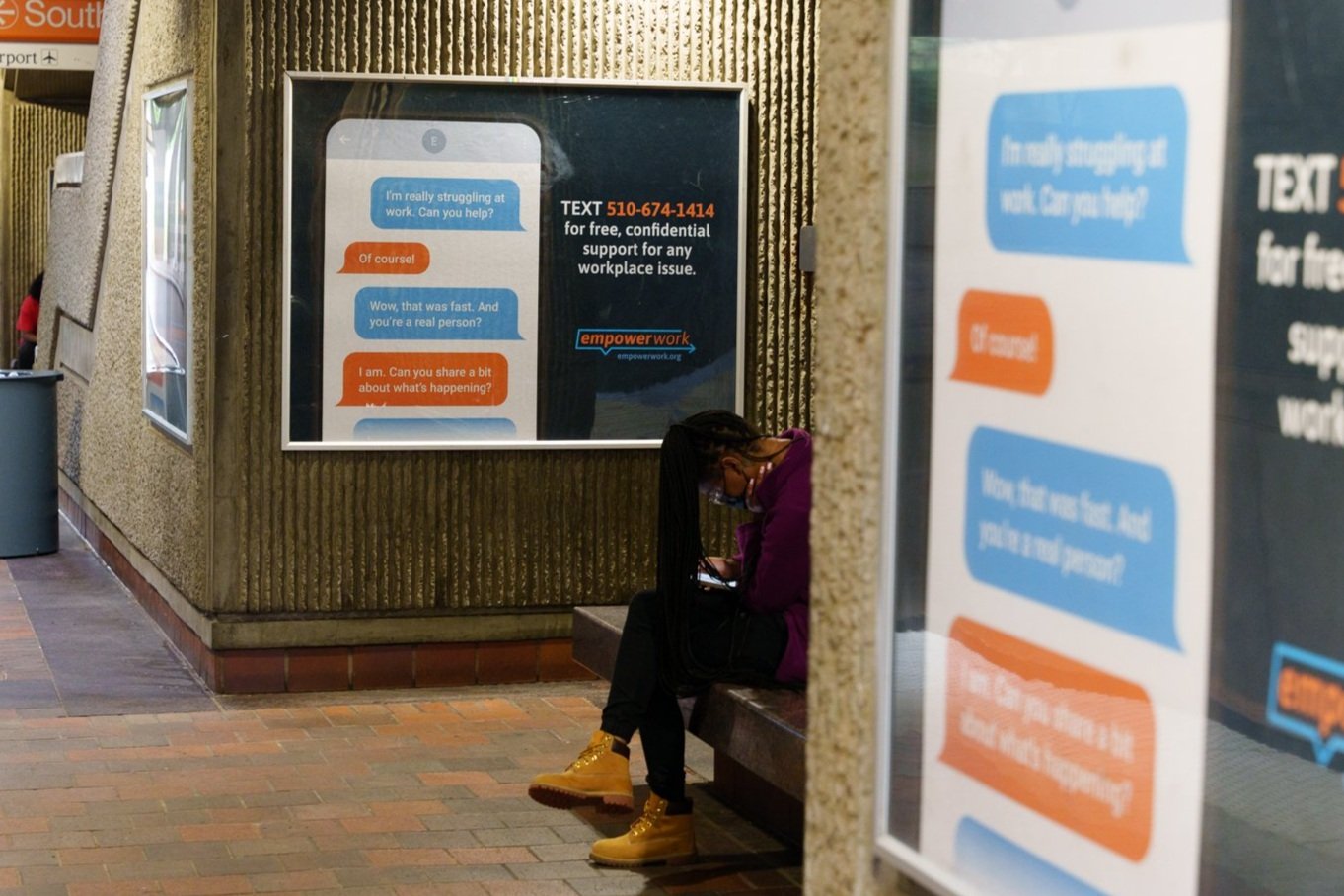Why bullying in the workplace happens and what you can do about it
An Empower Work texter shared, “My coworker says trash stuff about me every single time we work together and already has talked to one of my big managers about me. It makes me feel anxious, awful, horrible.”
Workplace bullying is ubiquitous. Why does it happen and what steps can you take to deal with it?
Are workplace bullies just “bad apples”?
There’s no question that some people are “bad apples,” who bring negativity and poor behavior to the workplace. They may act from personal bias, like racism or sexism. Or they may just have an abrasive personal style. But bullying persists when the workplace culture leaves the victim with limited power to withdraw or respond, where bystanders can’t or won’t act, and where the employer tolerates bullying in the workplace.
Unfortunately, workplace bullying isn’t taboo or illegal. Unless certain specific types of harassment or discrimination are involved, the victims of workplace bullying have no legal recourse. Workers’ compensation policies don’t cover the harm done, and you may not be able to collect unemployment insurance if you quit a job because you’re bullied.
The Workplace Bullying Institute writes, “Abuse at work is the only form of abuse in America that is not yet taboo. All other forms have been condemned – abuse of children, spouses, partners – while bullying at work is still considered a normal, inevitable, or even a necessary business practice.”
How do power imbalances contribute to bullying at work?
If you’re bullied at work, most likely that bully is in a higher position at the organization than you are. The owner or boss may abuse their power over managers, or senior coworkers may bully people of lower rank. In addition, the higher the stature held by the person doing the bullying, the harder it is for allies and bystanders to speak up.
Power doesn’t always follow the organizational chart, though. Teachers, for example, sometimes experience bullying at work from students or parents, because those stakeholders have the ability to threaten the teachers’ livelihood and reputation. And being a member of a marginalized group outside the workplace can lead to being a target for bullying at work, too.
How does culture contribute to workplace bullying?
Unfortunately, no workplace is immune to bullying if employers don’t take active steps to prevent it, or provide paths to respond to it. In extreme cases, a person might experience bullying at work by a group of people and not just an individual. This is known as mobbing.
Workplaces with highly competitive cultures can sometimes reward workers for aggressive behavior. For example, one worker may publicly criticize a coworker’s performance, embarrass someone in front of customers, or undermine a presentation in order to get attention from leaders and get ahead. In a competitive workplace, popularity and high performance may increase your chances of being a target for bullies.
“Toxic positivity,” the requirement that people remain cheerful at all times, even in negative or challenging situations, can also help bullying to flourish. If “the customer is always right,” management may not protect workers from abusive patrons or clients. And workers may be encouraged to give other people the benefit of the doubt instead of speaking up about microaggressions.
Can remote work help reduce bullying in the workplace?
When many office workers went remote during the COVID pandemic, there were high hopes that remote work could protect workers from bullying, but the results are mixed. It’s been widely reported that BIPOC workers prefer remote work to an even greater degree than their white counterparts, in part because they can avoid microagressions and pressure to fit into unwelcoming work groups.
But working from home presents different challenges. People may say things in email or Slack that they would never say to a coworker’s face. And there is much more opportunity for a bully to target someone when there aren’t any witnesses.
How can I help bully-proof my workplace?
You have a role to play in minimizing the chance of bullying in your workplace.
Find ways to be a role model for the behavior you hope to see.
Work on your listening, inclusiveness, and assertiveness skills.
Be an ally. Speak up if it is safe to do so. If it is not safe, you can still give private support to a coworker.
What if I’m the bully?
If people have called you a bully – or you worry that you’re crossing the line, take a look at whether you have any of the risk factors that could trigger workplace bullying against others. Those include a history of being bullied yourself (whether as a child or adult), experiencing other trauma or high stress, and insecurity about your job or life in general.
What can I do if I’m being bullied at work?
Being the victim of workplace bullying can negatively affect your mental health as well as your job performance and career prospects. But you’re not alone, and you can take steps to change your situation.
Document the abuse. Bullying and gaslighting sometimes go hand in hand. Keep a journal to record incidences of bullying. Put down the facts and dialogue accurately. Record any conversations you have with your boss or HR.
Get support. Just talking to a friend or relative can help you feel less isolated. A therapist can help you salvage your self-esteem and well-being. Empower Work peer counselors can provide a listening ear, help you gain perspective, and help you find your next steps.
*Note: Empower Work provides non-legal support for workplace challenges. This information, while authoritative, is not legal advice or guaranteed for legality. Employment laws and regulations vary by state. We recommend consulting with state resources for specific interpretation and decisions. If you believe you were discriminated against in violation of the law, we recommend you seek legal advice.

